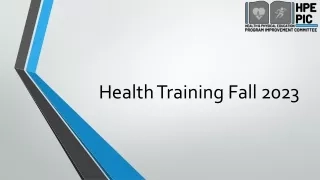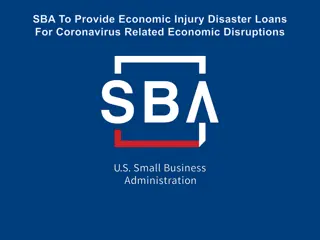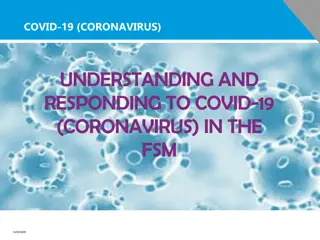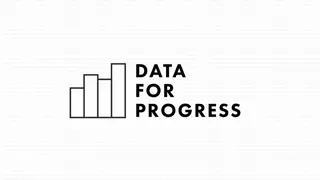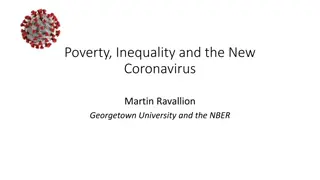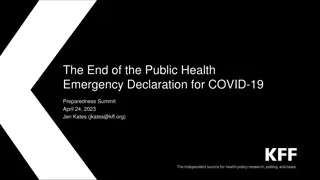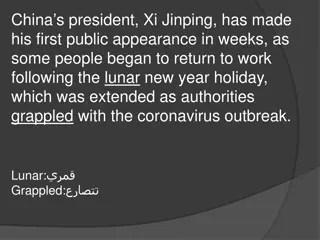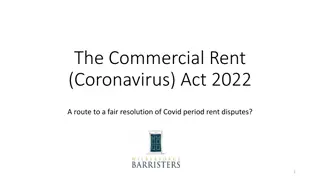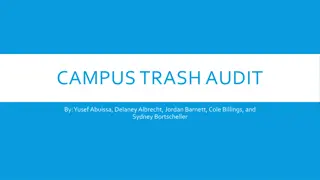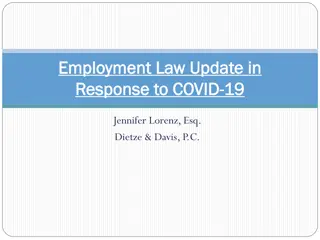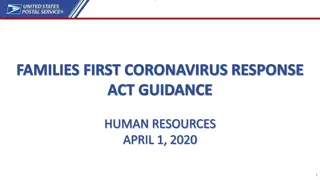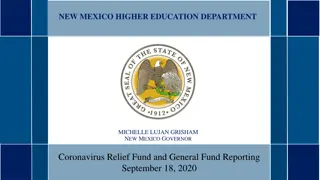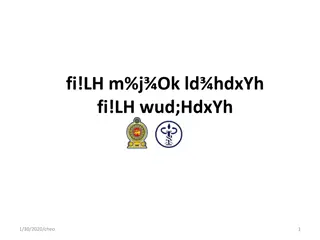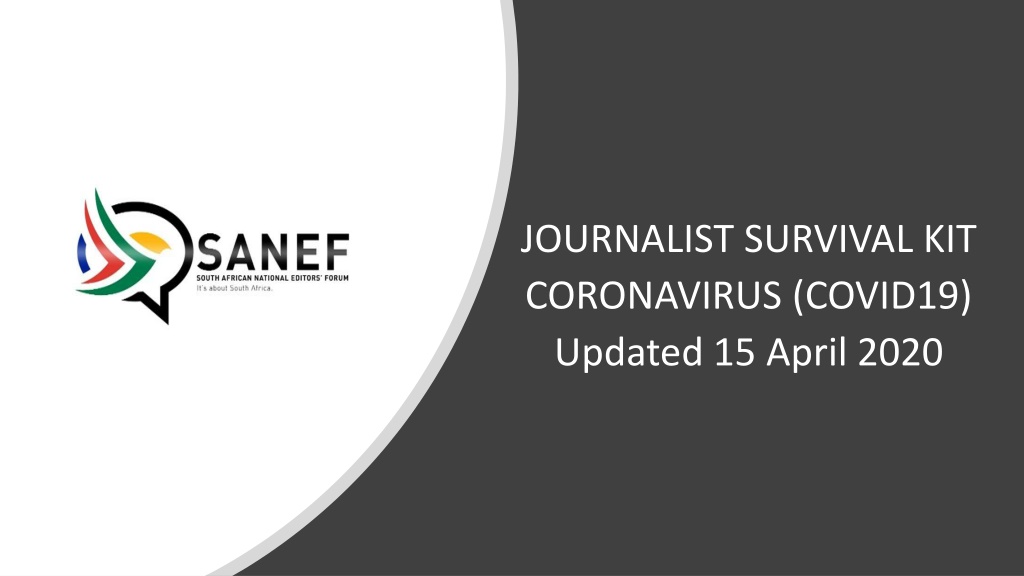
Journalist Survival Kit During Coronavirus Outbreak
"Learn about the essential documentation, safety guidelines, and trauma resources for journalists covering the COVID-19 pandemic. Stay informed, stay safe, and practice responsible reporting during these challenging times."
Download Presentation

Please find below an Image/Link to download the presentation.
The content on the website is provided AS IS for your information and personal use only. It may not be sold, licensed, or shared on other websites without obtaining consent from the author. If you encounter any issues during the download, it is possible that the publisher has removed the file from their server.
You are allowed to download the files provided on this website for personal or commercial use, subject to the condition that they are used lawfully. All files are the property of their respective owners.
The content on the website is provided AS IS for your information and personal use only. It may not be sold, licensed, or shared on other websites without obtaining consent from the author.
E N D
Presentation Transcript
JOURNALIST SURVIVAL KIT CORONAVIRUS (COVID19) Updated 15 April 2020
MEDIA CARDS AND DOCUMENTATION FOR LOCKDOWN Documentation Journalists NEED to carry ID Document (passport for foreign media). Media card/ letter from the editor (preferably media card). If necessary, the letter should be updated to include new lockdown dates. Permit (a short document included as annexure C in government gazette No. 43148 The Disaster Management Regulations - released by Cooperative Governance and Traditional Affairs, 25 March 2020). https://sanef.org.za/sanef-alert-media-cards-and-documentation- for-lockdown-final-information/
SAFETY GUIDE FOR JOURNALISTS (1) Only a skeleton team should be out in the field. All others should be working from home. Journalists with compromised immunities should NOT be sent on assignments. Carefully plan assignments. Research the latest security situation before sending journalists out. Journalists must be provided with protective gear. Continue physical distancing always - on assignment and during editing i.e. a one to two meter distance. Practice good hygiene including frequent handwashing preferably with soap and water for at least 20 seconds. Hand sanitizer should be a back up but must be followed with soap and water.
SAFETY GUIDE FOR JOURNALISTS (2) Constantly clean/sanitize your equipment. If possible use two microphones. Post assignment - watch for symptoms and take your temperature frequently. Immediately isolate/quarantine if you show any virus symptoms. Contact your office. Consider the potential psychological impact of reporting on COVID-19. Get assistance wherever possible. For more information: https://sanef.org.za/cpj-safety-advisory-covering-the- coronavirus-outbreak/
SAFETY GUIDE FOR JOURNALISTS TRAUMA RESOURCES (3) LifeLine National (24 hour service) 0861 322 322 LifeLine National Covid-19 (Toll Free) - 0800 012 322 The South African Depression and Anxiety Group Committee to Protect Journalists: Psychological support Dart Centre for Journalism and Trauma Poynter: Journalism and Trauma Front Line Defenders: Resources for Wellbeing and Stress Management Sexual Violence and harassment: International Women s Media Foundation People Against Women s Abuse
RESPONSIBLE REPORTING Practice responsible reporting always. Follow the Broadcasting Complaints Commission of SA and Press Council Codes. Avoid sensational reporting. Research and carefully fact check. Use credible sources. Counter misinformation, disinformation and fake news . Report all dodgy news on the Real411 platform or on the WhatsApp line 067 966 4015. Publicise these links widely. Do not stigmatize any groupings.
CREDIBLE SOURCES (links) The National Institute for Communicable Diseases The Covid-19 South African coronavirus news and information portal The World Health Organisation First Draft. The Committee to Protect Journalists World Association of Newspapers (Wan-Ifra)
SANEF CONTACT DETAILS For more information please contact: For more information please contact: Mahlatse Mahlase, Chairperson (083) 399-2852 Katy Katopodis, Deputy Chairperson (082) 805-7022 Moipone Malefane, Secretary General (082) 772-5861 Mary Papayya, Acting Media Freedom Chair (082) 379- 4957 Judy Sandison, KZN Convenor (082) 571-3334 Sbu Ngalwa, Eastern Cape Convenor (073) 404-1415 Janet Heard, Western Cape Convenor (078) 041-9528 Hopewell Radebe, Acting Gauteng Regional Convenor (083) 582-1734 Kate Skinner, SANEF Executive Director (082) 926- 6404 Twitter: @SAEditorsForum Email: director@sanef.org.za Website: www.sanef.org.za

